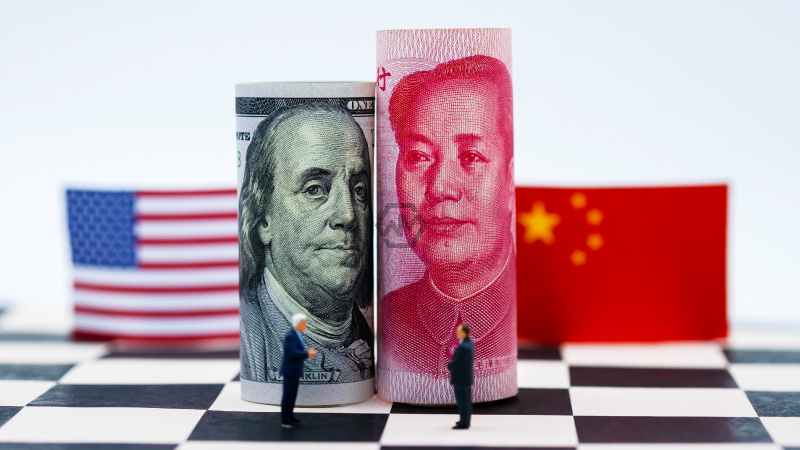- Trump threatens 50% additional tariffs on Chinese imports from April 9.
- Elon Musk privately urged Trump to reconsider, but failed to shift stance.
- China vows strong retaliation, possibly targeting Hollywood and U.S. poultry.
President Trump’s aggressive tariff push against China has sparked a fresh wave of global uncertainty. After increasing tariffs to 34% last week, he now plans to impose an additional 50% on Chinese imports, raising total duties to a staggering 104%.
Amidst the chaos, Tesla CEO Elon Musk reportedly held private talks with Trump, urging him to reverse the new levies due to potential damage to global trade and innovation.
Global Shockwaves: Trump-China Tariff War Escalates
President Trump’s latest threat to slap a 50% tariff on Chinese goods is the most aggressive move yet in the ongoing U.S.-China trade war. It comes on the heels of a 34% tariff increase last week and existing 20% penalties tied to fentanyl-related concerns. If implemented, total tariffs will exceed 100%, putting enormous strain on U.S.-China economic ties and potentially disrupting global supply chains.
China has made it clear it will not back down, with the Commerce Ministry stating it will “fight to the end” and respond with targeted restrictions. Reports suggest sectors like U.S. poultry and Hollywood exports could be hit, aiming to affect politically sensitive industries and cultural influence. This marks a shift in China’s strategy—responding not just economically, but symbolically.
The growing rift has drawn global attention, including from Indian Minister Piyush Goyal, who criticized China’s trade approach as unfair. He emphasized India’s preparedness to capitalize on market instability, urging a return to “fair play” in global trade. India may position itself as a neutral player and alternative manufacturing hub amid U.S.-China tensions.
While Elon Musk tried to intervene directly, highlighting the importance of open trade to technological progress, Trump remains unmoved. Musk’s shared video of Milton Friedman subtly pointed to the long-term economic harms of protectionism, but political messaging around “America First” continues to drive Trump’s agenda ahead of the looming April 9 deadline.
As the tariff standoff intensifies, the world braces for economic ripple effects. Whether diplomacy prevails or a deeper trade war erupts may depend on the next 48 hours.
“The most important single central fact about a free market is that no exchange takes place unless both parties benefit.” – Milton Friedman



